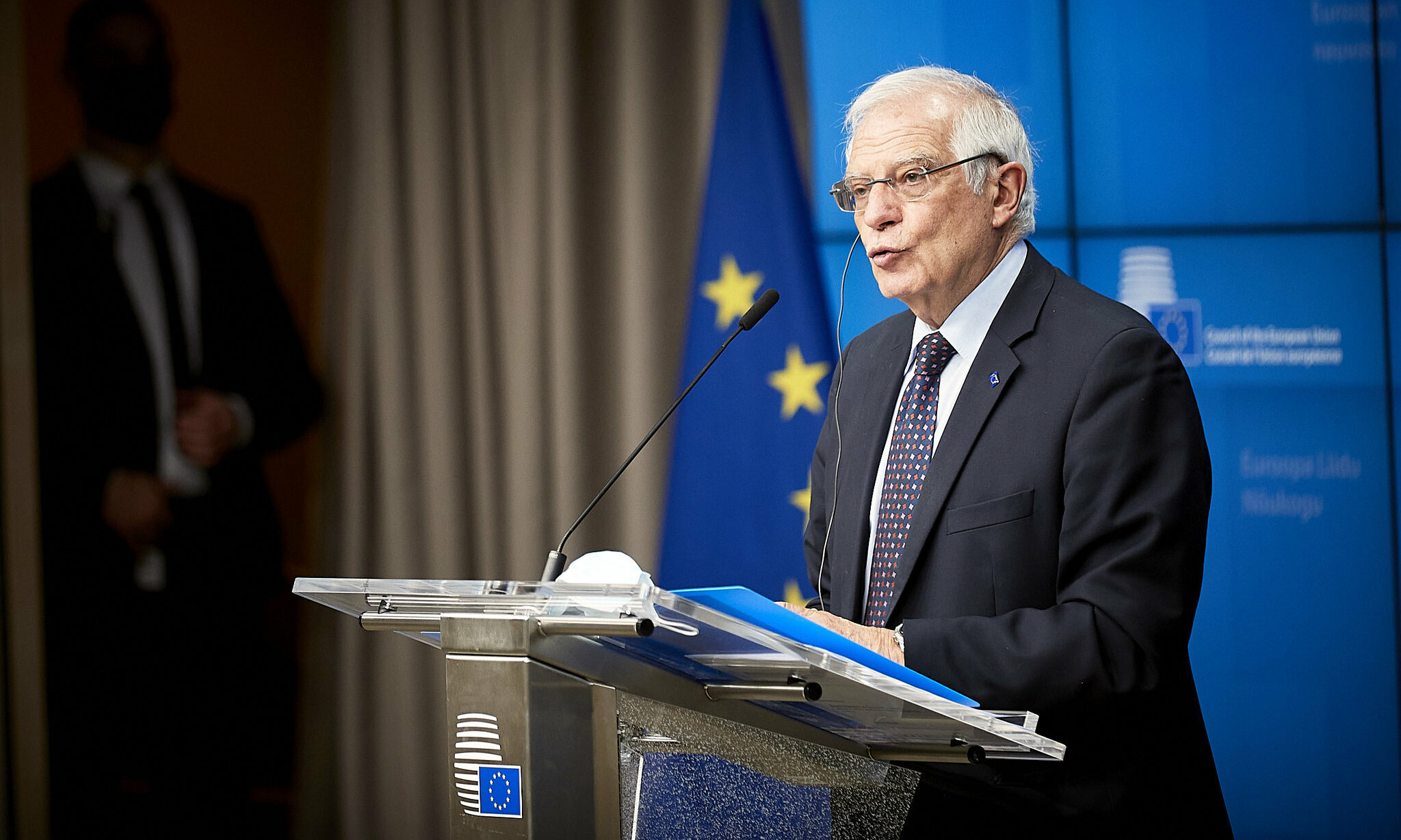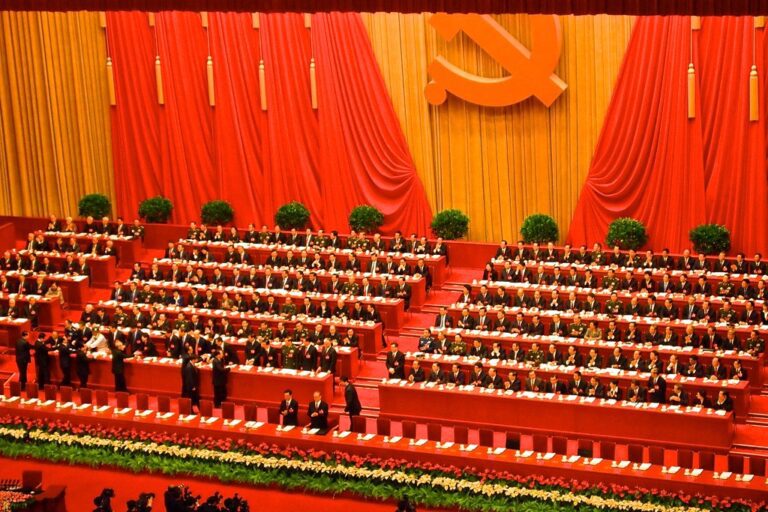
As tensions in the Indo-Pacific escalate and a scenario of a Chinese attack on Taiwan becomes more feasible, the question of the EU’s military role in the region gains relevance.
The EU’s Strategy for Cooperation in Indo-Pacific published in October 2021 acknowledged the growing need for the bloc to strengthen its position in the region. The document mostly focuses on trade, investment, environment, and social cooperation, but also devotes a significant section to security as an increasingly important aspect of the EU’s activities in the Indo-Pacific.
While geographically distant, the region’s security is intractably linked with that of the EU. As the strategy points out: “the display of force and increasing tensions in regional hotspots such as in the South and East China Sea and in the Taiwan Strait may have a direct impact on European security and prosperity.”
The EU approach that prioritizes political and economic involvement in the region is complemented by a limited, but slowly expanding European military engagement, including cooperation on weapons development, arms deliveries, and joint troops training.
Still, the EU remains a marginal security actor in the Indo-Pacific, even as the US is in the process of shifting its strategic gaze and resources to the potentially combustible region. Therefore, salient questions remain about the military role of the EU in the region and coordination with the US, including in reaction to China’s potential military escalation.
Strategic guidelines
The security paradigm espoused by the EU Indo-Pacific strategy has not come from nowhere and permeates all the existing European strategies on Indo-Pacific.
France has played an especially prominent role in this regard. In May 2018, French President Emmanuel Macron underlined the main pillars of France’s involvement in the Indo-Pacific, which do not only stem from its economic importance, but also from the fact that France is the only EU member state with territories in the region. The first pillar of French engagement, as announced by Macron, is a “strong involvement from France in settling regional crises, the safety of main shipping routes and in the fight against terrorism, radicalization and organized crime.”
The subsequent French Defense Strategy in the Indo-Pacific from 2019 identified the French security interests as to “protect the sovereign territories, secure strategic supplies, ensure freedom of actions and foster stable regional developments. ”
The French strategic document was followed by those of the Netherlands and Germany. One of the key points of the Netherlands’ Indo-Pacific guidelines says: “partnership with these countries should focus primarily on promoting our interests in the areas of the international legal order, democracy and human rights, sustainable trade, security and stability, safe passage and maritime security.” Finally, in the German policy guidelines for the Indo-Pacific, one of the focus areas is strengthening peace, security, and stability, asserting that “free maritime routes and maritime security are of vital importance to Germany.”
All these passages on the significance of security aspects included in the strategic documents were not only mirrored but also further emphasized in the EU’s strategy. Here, security and defense are identified as one of the priority areas where the EU should play a key role as a global maritime security provider. The document points out the necessity to maintain and ensure maritime security and freedom of navigation in accordance with international law and the UNCLOS.
A key aspect appearing in the discussions is the direct military presence of EU member states in the region. The EU strategy notes that the actions needed for the successful implementation of the strategy include “Exploring ways to ensure enhanced naval deployments by EU member states to help protect the sea lines of communication and freedom of navigation in the Indo-Pacific while boosting Indo-Pacific partners’ capacity to ensure maritime security.” The EU officials continue to stress the importance of the EU’s increased security presence in the Indo-Pacific even after the outbreak of the Russian war on Ukraine, as evidenced by recent comments of High Representative/Vice-President Josep Borrell.
The main problem in fulfilling the strategic guidelines is the lack of an operational platform in the security area for common EU operations. The current mechanisms are operating under the second pillar of European integration – the Common Security and Defense Policy (CSDP), which remains underdeveloped. The EU has tried to build upon the existing framework and expand new ones as part of the strategic autonomy debate in order to reduce dependence on operational and defense competencies on other actors, mainly the US. However, the bloc still only possesses limited options in this regard.
Limited but Growing Engagement
The CSDP provided the EU with some tools (mostly in naval operations) for the expansion of its security engagement in the Indo-Pacific. Since 2008, under Operation Atlanta (EU NAVFOR), the EU has conducted successful operational cooperation with countries from the region – Japan, Pakistan, India, and Djibouti. Experience gained during these exercises could be used to assess the possibility of enlargement of the Maritime Areas of Interests (current pilot project in the Gulf of Guinea) to the Indo-Pacific, including the disputed areas such as the South China Sea. These areas (together with the Maritime Areas of Interest Coordination Cell) are to be monitored, collecting the information provided by individual member states’ navy vessels sailing in the region.
The political aspect of military relations is also present in the EU’s cooperation with partners in the region, mainly involving strengthening the EU’s role in the ASEAN security infrastructure. The EU (as well as Germany and France) were invited by Vietnam as part of the Guest of Chair Program to the 2020 summit of ASEAN Defense Ministers Meeting Plus, right after the elevation of EU-ASEAN relations to a strategic partnership.
The security cooperation in the Indo-Pacific also involves the deployment of military advisors to EU delegations in the region, currently present in China and Indonesia. The EU is also stepping up the activities with partners under the Enhancing Security Cooperation in and with Asia (ESIWA) project which covers counter-terrorism, cybersecurity, maritime security, and crisis management in cooperation with India, Indonesia, Japan, the Republic of Korea, Singapore, and Vietnam. Under this platform, EU military experts are already operating in Indonesia and Vietnam.
Apart from the political consultations and exchange of information, the EU and the individual member states are increasingly cooperating on military activities with their Indo-Pacific partners. Last year, Germany restarted (after 20 years) its naval presence in the region with the deployment of frigate Bayern (August 2021-February 2022) in the disputed areas and conducting port visits to regional actors. The German air force (6 German Eurofighters plus 250 personnel) also participated in the exercises in Australia (KAKADU 2022). This year, German land forces are set to participate in another exercise in Australia.
Since the announcement of freedom of navigation operations in the South China Sea in 2018, the French navy has stepped up its activities in the region, e.g. conducting in 2021 a patrol on the South China Sea with its nuclear submarine (and support ship) and later joining common exercises with Indonesia. In March 2021, a French frigate docked in Vietnam with a clear signal of France’s commitment to the stability of the Indo-Pacific. In May of the same year, a French helicopter carrier and a frigate again took part in joint transit of the South China Sea with two Australian ships and afterward joined the common exercises with the US, Japan, and Australia. However, in a move likely designed to avoid escalating relations with China, France announced in 2019 that its nuclear aircraft carrier would not be entering the South China Sea, providing no official explanation.
European member states are also cooperating with partners across the Indo-Pacific in their development of military potential, especially submarine programs. In 2021, Taiwan’s defense minister admitted the involvement of European partners in the country’s indigenous submarine project. The first of the eight planned vessels is scheduled for delivery in 2025. Netherlands and France already have a history of sales to Taiwan of frigates, submarines, and fighter jets. France has also been very active in arms sales to Indonesia, signing a deal in January 2022 on 42 Rafale fighters and in February on joint construction on two Scorpene submarines. German companies are also involved in the replacement of Singapore’s underwater fleet, and the United Kingdom, Italy, and Japan cooperate to develop a next-generation fighter aircraft under the 6 Generation Combat Air Program which was announced in December 2022.
The Future of EU’s Military Role
Based on recent public and closed-door discussions, it is clear that experts and analysts from Germany, France, and other EU countries consider a Taiwan contingency as a substantial and real threat, and that the involvement of EU member states in supporting the US would be politically necessary.
A key challenge lies in the question of burden-sharing, especially in terms of the ongoing assistance to Ukraine and the continued Russian threat to the EU’s security. First of all, there is a need for the enhancement of the EU’s common military potential, chiefly as regards the individual member states’ spending and defense capabilities as part of deterrence against Russia. Yet, indirectly, the EU’s stepping up on the issue of its own defense would serve as an important part of engagement in the Indo-Pacific as well. Increased investment in the security of the European continent would enable the US to reliably signal the capacity to engage in the defense of Taiwan, even with a parallel Russian offensive in Ukraine.
Secondly, the EU member states should still be expected to extend limited support (also under EU-NATO and EU-UK cooperation) to US defense engagement in the Indo-Pacific. Such burden-sharing would be limited in terms of active participation (due to the very reduced potential) but sizeable in terms of security cooperation with regional partners, including in boosting their defense potential and capacities to counter hybrid threats and offering support via political initiatives.
Short-term, the EU’s efforts already serve as a stabilizing factor in the region. In the long-term view, extending support to regional partners in their defense against hard and hybrid threats will provide a more solid base for security cooperation with the US in case China escalates.
Written by
Marcin Przychodniak
Molos123Marcin Przychodniak is an Analyst at Asia-Pacific program at the Polish Institute of International Affairs (PISM), focusing on Chinese politics and a former diplomat in Beijing.


